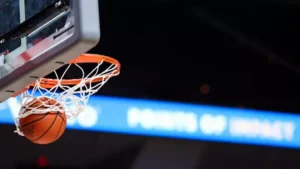
When Simpson walks into the film room, the weight of his message hits just as hard as any Sunday-night highlight reel. He doesn’t teach technique alone; he preaches identity. For Simpson, coaching defensive tackles isn’t merely about plugging gaps or collapsing pockets—it’s about forging a brotherhood, where each lineman is accountable not just to the playbook, but to the man beside him.
“We don’t play as individuals. We strike as one,” Simpson often tells his room—a mantra that now echoes through every rep, every snap, every step they take onto the gridiron. In a football era driven by analytics and solo stat lines, Simpson’s philosophy is both refreshingly traditional and radically modern: Collective effort creates elite outcomes.
This isn’t just motivational jargon. It’s method. Simpson’s drills are designed to synchronize footwork, reaction times, and leverage so precisely that the unit moves like a choreographed force of nature. Watching his tackles work is like observing the coordinated might of a freight train—separate engines, same direction, unified power.
But where Simpson truly transcends the Xs and Os is in how he reshapes the mindset. He teaches his linemen to take ownership—not just of their position, but of their collective reputation. Mistakes aren’t shrugged off; they’re dissected and learned from together. Successes aren’t hoarded; they’re celebrated in the name of the whole room.
Through film sessions, leadership development, and brutally honest conversations, Simpson has created a room where the defensive tackles don’t just line up side-by-side—they believe in each other. There’s a palpable pride now, not just in getting the sack, but in the assist that made it possible. Not just in plugging a run, but in the two-gap effort that freed a teammate to make the play.
And that shift in mindset is becoming contagious.
In practice scrimmages, the sideline erupts not for picks or touchdowns, but for a perfectly executed stunt by the D-tackles. Coaches nod. Teammates notice. Opponents? They’ll soon feel it.
As the 2025 season looms, the impact of Simpson’s teaching will not just be measured
